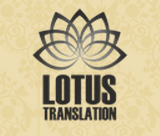
Along with the end of summer sensations, flavours and colours, also ends the quiet time when politicians wander around to rallies and summer camps, pedal bicycles and shake hands with voters and supporters.
The period between the failed referendum on land sale to foreigners and Renata Cytacka’s scandal was special not only for its tranquillity, characteristic of the holiday season. There was even something akin to unity against the background of growing Russian threat and aggression in Ukraine. Even when Russia announced sanctions against the European Union, we responded surprisingly solidly –there were hardly any audible calls for urgent change in foreign policy or sending a mission of penitents to the Kremlin that could pray exception for Lithuanian cheese and sausage manufacturers.
Despite Lithuania’s ruling coalition having expelled the Electoral Action of Poles in Lithuania (LLRA) party from government, the question of what it did there in the first place remains unanswered. The coalition did not need LLRA votes in parliament because it held the majority even without them. Bilingual public signs and spelling of Polish names still have not been legalized and sometimes it seemed that most LLRA politicians were rather reluctant to push the issue, because they got so good at playing victims and would know what to do if these issues were finally solved. The LLRA’s desire to destabilize the ruling coalition could be explained easily by the approaching elections of municipal councils and mayors. But this time, the explanation seems too superficial to me.
The St George Ribbon in the lapel of LLRA leader Valdemar Tomaševski on 9 May symbolized the organization’s political shift from the Polish identity to the one focused around Putin‘s “Russian World”. It also indicated a possible disappointment with a lack of support from Poland in his crusade for the allegedly oppressed and persecuted Polish-speakers in Lithuania. It is more and more difficult for Tomaševski to find patrons in Poland, especially at the time when Polish and Lithuanian political leaders are more concerned about threats from the East than about W’s in passports. Even in quiet times, the pressure had always been too bland and insufficiently rigorous, in the opinion of Tomaševski.
Russia is a different story. It calls all its nationals to go on and build the “Russian World”. The ideology has already been developed over the years and was knocked into the heads of the eastern Lithuanians by Russian TV channels which are particularly popular in that part of the country. If somebody in the Kremlin had been tasked with sowing discord between all ethnic minorities in Lithuania and the country’s authorities, he would have been truly pleased to find that it had been already achieved thanks to the LLRA and some Lithuanian nationalist parties. If that scenario does exist, we should soon see organized attacks of Lithuanians allegedly associated with Palestinians against Lithuanian Jews. And we are on too good terms with the Tatars and Karaites.
Yesterday, my wife read somewhere that the Soviet saw tool “Druzhba” (“Friendship” in English) was named so on the occasion of the 300th anniversary of Ukraine’s joining to Russia. Now, this saw of friendship of nations has turned into a horror film for Ukrainians, one where “The Texas Chainsaw Massacre” masked villain would be cast only in a minor role, completely overshadowed by all the strelkovs and borodays.
Lithuania’s major parties have been able to ignore the problems of ethnic minorities for almost a quarter of a century and not try to attract Polish- or Russian-speakers to its ranks, leaving them to organizations founded on ethnic grounds. However, being a Russian speaker or a Polish speaker is not a political affiliation. Certainly, not all Poles living in Vilnius region share the conservative-clerical views with the politicians who claim to represent them.
Growing hostility of ethnic minorities towards the Republic of Lithuania and radicalization of their organizations would not only pose a threat to national security, but also lead us to reluctant acceptance of the more stringent policing arrangements inside the country. Insisting that the special services not only monitor Russian agents, but also take preventive action, we may miss the line where our own rights and freedoms get infringed upon.
On 22 August, Oleg Lyin, a poet from St. Petersburg, was arrested by the police in the street for wearing a hat in the colours of the Ukrainian flag. The day before, electric grid workers were detained in Moscow because they painted a pole in yellow and blue. This colour witch-hunt started on 20 August, when a star atop a Stalin-era skyscraper in Moscow was painted, deliberately, in the colours of the Ukrainian flag.
Can one imagine something like this happening in Lithuania? Personally, I still cannot, but only because I believe that we would not give in to the temptation to ban symbols we don’t like instead of trying patiently to explain what they really mean.
Translated by Lotus Translation


Be the first to comment